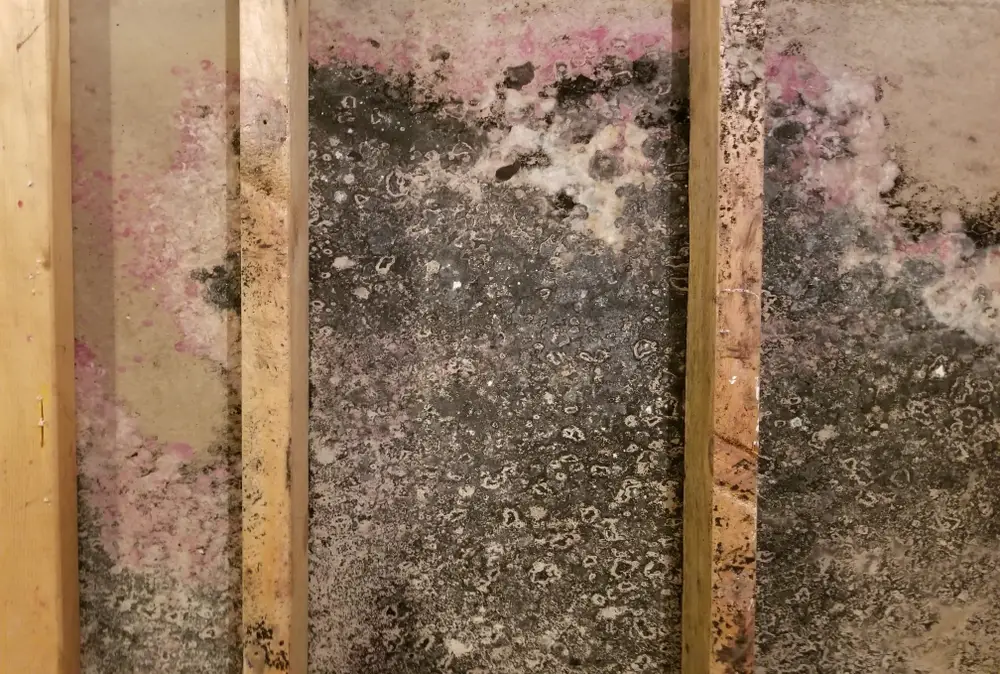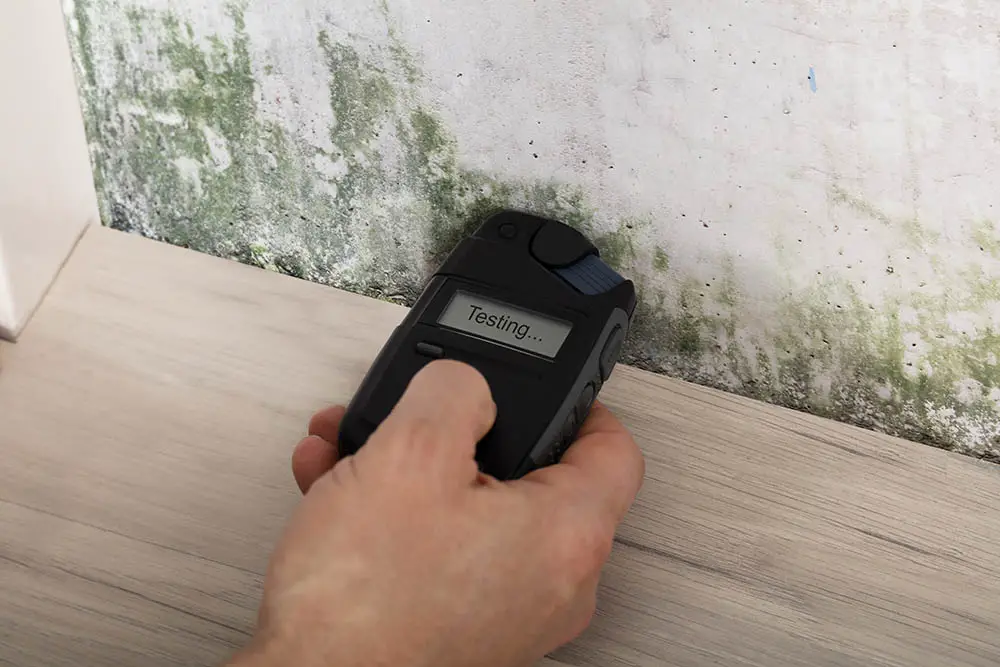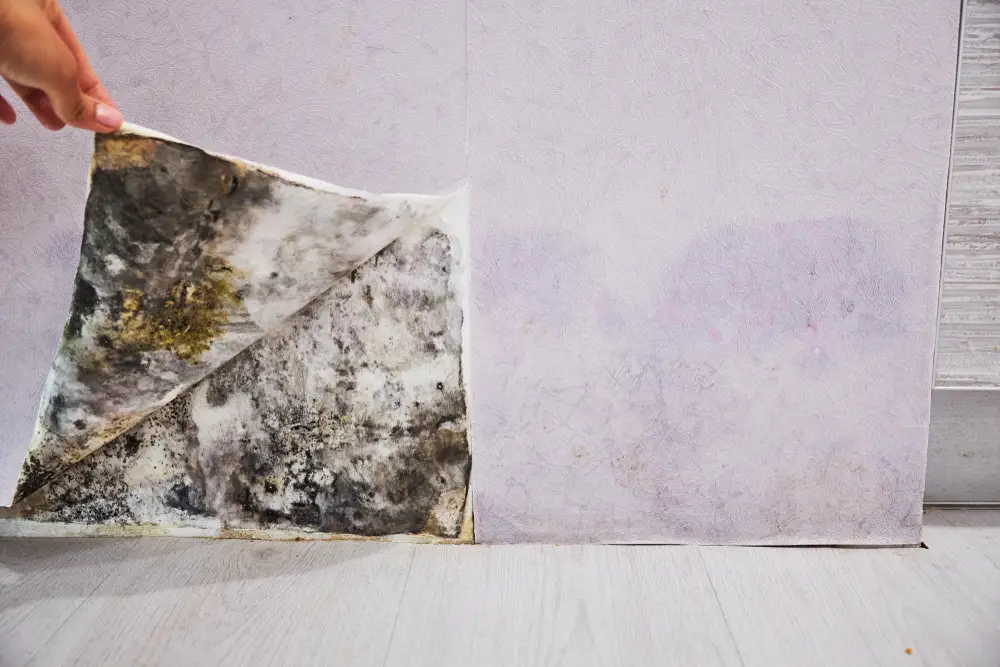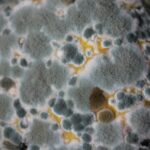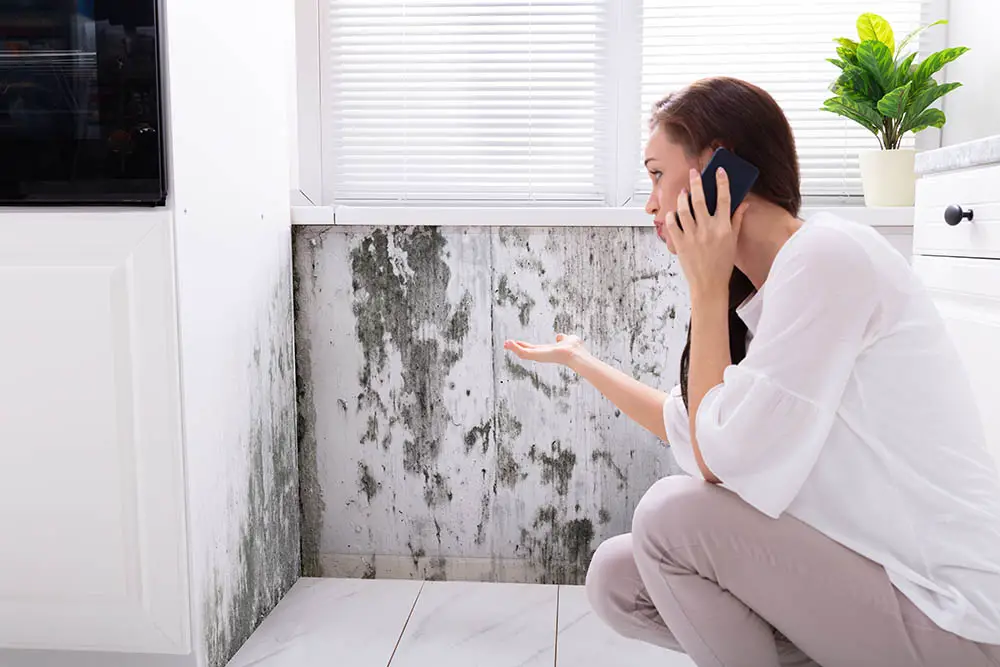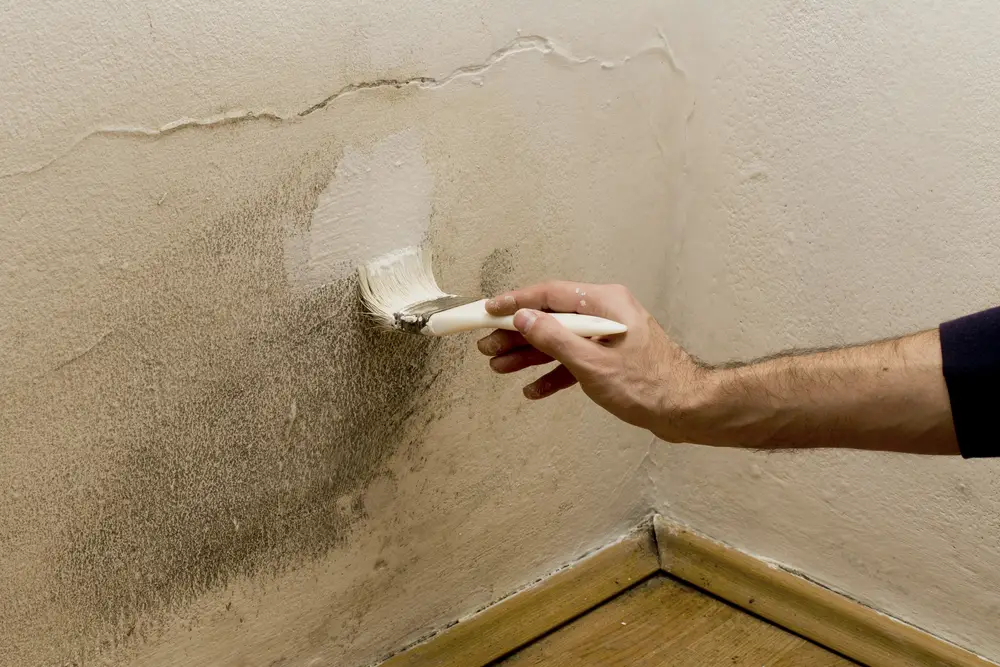If you’ve discovered mold in your home, you might wonder if mold spores travel through drywall. In this article, we address common questions about mold spores and their ability to travel, focusing on their interaction with drywall.
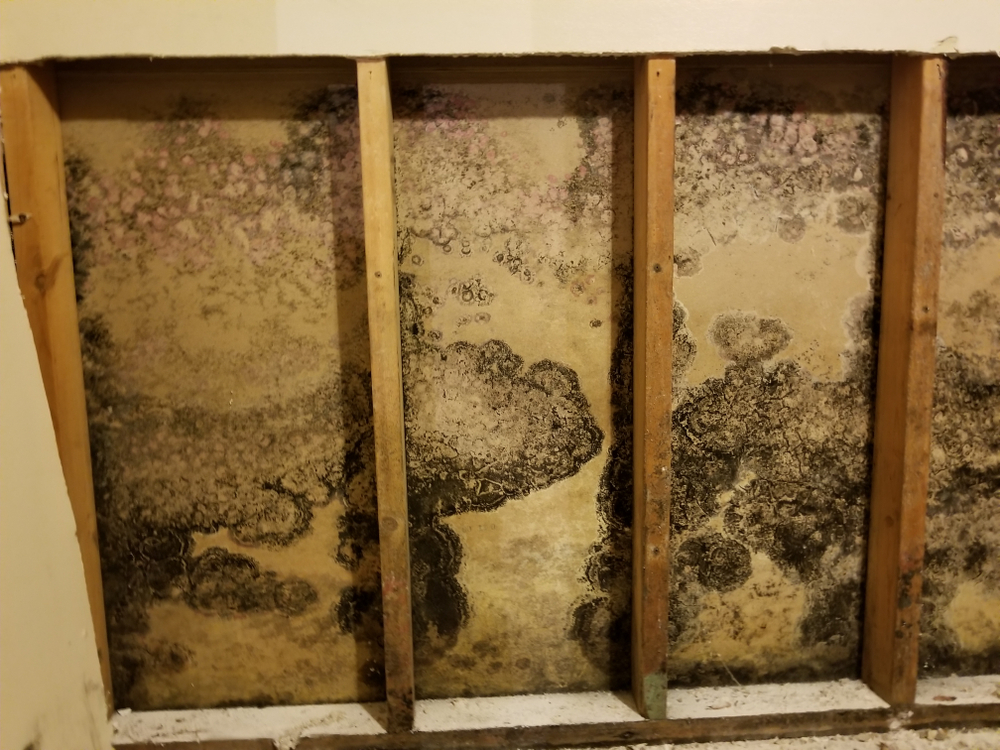
Can Mold Spores Travel Through Drywall?
Yes! Mold can travel through drywall easily. If you notice mold in any part of your drywall you must deal with it as soon as you can, as a matter of urgency. Because drywall is a porous material, mold, and mildew view it as a haven.
It can quickly bloom and infect whole stretches of wall, as well as gain access to any nearby HVAC systems, furniture, carpets, and other upholstery. The quicker you act, the less likely it will be to take hold of your whole home.
When mold is in a growing stage, also known as active mold, it can easily spread through any surface. It is easier on porous surfaces, such as drywall, so take extra care if you have drywall in your home.
Keep your eyes and nose peeled for any signs of mold such as musty smells, visible patches of dark mold, respiratory issues, and fungus or mildew growth.
How Do You Know If Mold Spores Travel Through Drywall?
One of the most common signs that you have mold behind your drywall is any example of moisture. Mold can present in rings of water, water ‘spillages’, and can also affect any paint and wallpaper that may be on your walls. You may be able to see these signs before you notice anything else.
Another common sign of drywall being infested with mold is the recognizable musty smell that is associated with mold.
If you smell ‘old water’, dirt, or even old wet leaves, this could be an indicator that there is mold somewhere in your home.
This mold is, most often, found in drywall, especially in damp areas such as crawl spaces, basements, bathrooms, and attics.
You should also keep an eye out for any physical signs of mold. Black mold, for example, presents as a hair-like filament, similar to webbing when it is in its active stage.
When it is inactive you may well notice peeling, dry and flaky dark patches. Other types of mildew and mold could be white, green, brown, or orange. It may even cause your paint or wallpaper to discolor.
Do Mold Spores Travel?
Mold spores can travel if they are disturbed. Typically, mold, especially black mold, is covered with a wet, moist film. This can stop too many spores from becoming airborne.
However, if that mold is disturbed in any way, then the spores can then be moved away from the mold infestation and be left to travel through the air. This is especially dangerous with toxic mold, especially if you have vulnerable adults, children, and pets in your home.
Mold spores that travel through the air are even more likely to cause respiratory issues such as couches, sniffles, and sore throats. They may even be linked to diseases and illnesses such as pneumonia.
Of course, mold spores can also travel from surface to surface, particularly if said surfaces are porous. If you have mold in one patch of your wall, it is very common and highly likely for that mold to spread on the wall.
Before long, whole rooms can be infested, as well as any upholstery that can be reached from the walls. For example, if you have a couch or curtains against a mold-ridden wall, then there is a chance the curtains or furniture can get infected too.
Will Mold Spores through My Walls Die?
Mold in walls can possibly die if you eliminate the source that is powering the mold. This is, more often than not, water.
Mold needs moisture to grow, therefore, getting rid of that moisture source can cause the mold to die out.
However, this can be a tricky job, and it is not always guaranteed. The best thing to do is seek help and advice from a professional who has experience in dealing with mold.
Does a Musty Smell Mean There’s Mold Spores Through Drywall?
Generally, a musty smell is always a sign of mold or mildew. However, this may not always be the case.
That being said, if you do begin to notice a musty smell that you have not noticed before, you should definitely check your home for signs of mold.
Investigate your HVAC system for leaks as this can cause mold and mildew, check your basement for flooding, check your bathroom and kitchen, and also check anywhere that can get damp or is prone to condensation.


